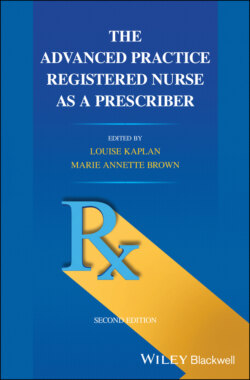Читать книгу The Advanced Practice Registered Nurse as a Prescriber - Группа авторов - Страница 9
THE JOURNEY OF APRN PRESCRIPTIVE AUTHORITY
ОглавлениеFor decades, APRNs have invested innumerable hours in lobbying and regulatory work to advance APRN practice. They have solidified the APRN role, strengthened the foundation for APRN education, and expanded the knowledge base for expert practice. In the United States, APRNs in Idaho were the first authorized to prescribe medication in 1971, though it took six years for rules to be written and prescriptive authority to be implemented. Most, but not all, APRNs have now been granted prescriptive authority in all states. In California, for example, clinical nurse specialists and nurse anesthetists do not have prescriptive authority (Phillips, 2020). APRNs have repeatedly demonstrated that they provide effective, high‐quality care, including prescribing medications. Nonetheless, APRNs in over half of the United States confront prescribing barriers imposed by state law on a daily basis. These barriers include requirements for supervision or collaboration, restrictions on prescribing controlled substances, and limitations on the type and quantity of medications that can be prescribed. Other barriers are imposed by federal law, such as the conditions under which an APRN may prescribe buprenorphine for substance use disorder.
As a consequence of prescribing barriers, many APRNs are unable to practice to the full extent of their educational preparation, knowledge, and abilities. This negatively affects patient care and the healthcare system overall. Practice constraints handicap the APRN who is unable to fulfill roles in outpatient and inpatient settings. These restrictions continue despite an increased demand for primary, specialty, and acute care providers, and the integration of primary care practices into large health systems. APRNs are in more demand with shortages of primary care providers, particularly to work with the underserved and as those living in rural areas increase. Nurses have a rich history of dedication to social justice and service to marginalized communities. Successful implementation of healthcare reforms in the years to come requires APRNs to be full partners with other health professionals, which necessitates the removal of barriers to allow APRNs to practice to the full extent of their education and expertise.
